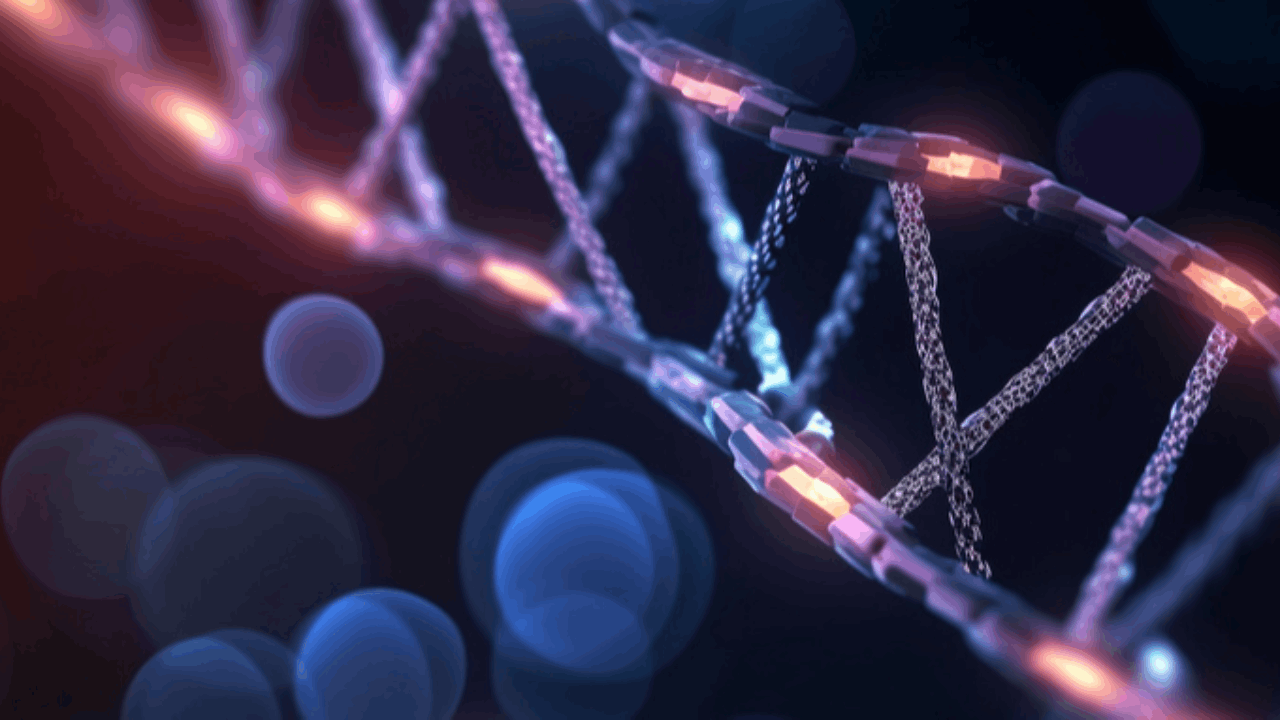预约演示
更新于:2025-05-07
Type 2 diabetes mellitus in obese
2型糖尿病肥胖
更新于:2025-05-07
基本信息
别名 Diabetes mellitus type 2 in obese、Diabetes mellitus type 2 in obese (disorder)、NIDDM in obese + [3] |
简介- |
关联
20
项与 2型糖尿病肥胖 相关的药物靶点 |
作用机制 LIPF抑制剂 |
在研适应症 |
非在研适应症 |
最高研发阶段批准上市 |
首次获批国家/地区 日本 |
首次获批日期2013-09-02 |
作用机制 CA2抑制剂 [+3] |
在研机构 |
原研机构 |
非在研适应症 |
最高研发阶段批准上市 |
首次获批国家/地区 美国 |
首次获批日期2012-07-17 |
靶点 |
作用机制 GLP-1R激动剂 |
原研机构 |
最高研发阶段批准上市 |
首次获批国家/地区 美国 |
首次获批日期2005-04-28 |
247
项与 2型糖尿病肥胖 相关的临床试验NCT06735859
Impact of Eating Window and Sleep Disorders on Glycemic Control, Cardiovascular Risk, and Weight Loss in Chronic Diseases
This project aims to offer a quantitative and qualitative nutritional approach, along with educational nutritional guidelines for participants with Non-Communicable Chronic Diseases. The main goals are: 1- Regularization of eating habits and windows; 2- Modulation of biochemical, anthropometric, and cardiovascular parameters; 3- Increase in knowledge about healthy eating. In this way, participants will undergo a complete nutritional assessment, comprising anthropometry, biochemistry, clinical, and dietary evaluations.
开始日期2025-09-17 |
NCT06800794
Effect of Meal Timing and Dietary Changes on Metabolic and Behavioral Factors Involved in the Food Insecurity-Obesity Paradox
This study aims to explore how food insecurity, a lack of consistent access to enough food, may lead to changes in the body that make it harder to lose weight. The investigators are testing whether providing women experiencing food insecurity with a stable, healthy, and personalized meal plan can improve their metabolism and reduce their motivation to eat unhealthy foods. The hypothesis is that addressing food insecurity with a predictable diet can lower a person's respiratory quotient (a measure of how the body uses energy), promote fat burning, and improve overall health. This research will improve the understanding for how food insecurity contributes to obesity and may lead to better solutions for managing weight in individuals facing these challenges.
开始日期2025-05-15 |
申办/合作机构 |
NCT06890169
OneSTOP (One-Stop Telehealth Obesity Program): the Use of Telecare and Digital Platforms for Multidisciplinary Management of Weight Management and Related Comorbidities
The goal of this clinical trial is to learn if the use of a care model including teleconsults and the EMPOWER app can induce clinically significant weight loss and metabolic improvements in obese adults with diabetes and metabolic dysfunction-associated steatotic liver disease (MASLD).
Researchers will compare this model with the conventional standard of care of physical visit-based weight management program to see if this model is non-inferior to the standard of care for inducing weight loss, and if there is greater patient convenience with telehealth and more frequent self-monitoring, compliance with diet advice and exercise participation compared to standard of care.
Participants in the standard arm will attend 4 physical doctor and 4 physical dietician consultations over 26 weeks, where they will be provided with an individualized diet and exercise prescription to induce at least 5% weight loss.
Participants in the intervention arm will have the same number of consults over 26 weeks, of which at least 50% will be teleconsults, and will also be provided with an individualized diet and exercise prescription to induce at least 5% weight loss. In addition, they will be taught to use the EMPOWER app to upload weight, blood pressure and glucose, food and exercise records which will be reviewed at the consults. The app also delivers nudges to improve adherence to lifestyle modification.
Researchers will compare this model with the conventional standard of care of physical visit-based weight management program to see if this model is non-inferior to the standard of care for inducing weight loss, and if there is greater patient convenience with telehealth and more frequent self-monitoring, compliance with diet advice and exercise participation compared to standard of care.
Participants in the standard arm will attend 4 physical doctor and 4 physical dietician consultations over 26 weeks, where they will be provided with an individualized diet and exercise prescription to induce at least 5% weight loss.
Participants in the intervention arm will have the same number of consults over 26 weeks, of which at least 50% will be teleconsults, and will also be provided with an individualized diet and exercise prescription to induce at least 5% weight loss. In addition, they will be taught to use the EMPOWER app to upload weight, blood pressure and glucose, food and exercise records which will be reviewed at the consults. The app also delivers nudges to improve adherence to lifestyle modification.
开始日期2025-05-01 |
申办/合作机构 |
100 项与 2型糖尿病肥胖 相关的临床结果
登录后查看更多信息
100 项与 2型糖尿病肥胖 相关的转化医学
登录后查看更多信息
0 项与 2型糖尿病肥胖 相关的专利(医药)
登录后查看更多信息
2,461
项与 2型糖尿病肥胖 相关的文献(医药)2025-06-01·Biochemical Pharmacology
7′-Hydroxyl substituted xanthones from Gentianella acuta revert hepatic steatosis in obese diabetic mice through preserving mitochondrial homeostasis
Article
作者: Zhang, Yi ; Wang, Tao ; Yu, Haiyang ; Wang, Yadong ; Chen, Qian ; Liu, Mengyang ; Wu, Jiaqi ; Li, Jian
2025-05-01·Phytomedicine
Integrative gut microbiota, metabolomics and proteomics studies unraveled the mechanism of Shaoteng decoction in treating Sjogren's syndrome
Article
作者: Pang, Fengtao ; Tang, Xiaopo ; Li, Kesong ; Jiang, Quan
2025-05-01·Molecular and Cellular Endocrinology
Antioxidants improve the viability of diabetic bone marrow MSCs without rescuing their pro-regenerative secretome function
Article
作者: van de Vyver, Mari ; Maartens, Michelle ; Vlok, Mare
1
项与 2型糖尿病肥胖 相关的新闻(医药)2023-06-26
药物研发进展
1.轩竹生物新一代质子泵抑制剂安奈拉唑钠肠溶片获批上市
6月25日,中国国家药监局(NMPA)官网公示,四环医药旗下控股子公司轩竹生物研发的安奈拉唑钠肠溶片(曾用名:安纳拉唑钠肠溶片)上市申请已获得批准,用于治疗十二指肠溃疡。公开资料显示,安奈拉唑钠肠溶片为新一代质子泵抑制剂(PPI)类药物。质子泵抑制剂是一类用于治疗胃食管反流和溃疡等疾病的常用药物。PPI类药物通过抑制壁细胞膜的H+-K+交换,从而抑制壁细胞分泌胃酸的功能,在胃酸分泌的最后环节上发挥作用,抑制胃酸分泌。根据四环医药早先公告,作为一款新一代PPI类药物,安纳拉唑钠通过高效快速抑制胃酸分泌,以及清除幽门螺旋杆菌达到快速治愈溃疡的效果。此外该药为肠溶片,经多酶及非酶代谢,药物间相互作用的风险较低。根据中国药物临床试验登记与信息公示平台,轩竹生物已经完成了一项3期临床研究,评价安奈拉唑钠肠溶片治疗十二指肠溃疡的有效性及安全性。根据四环医药早先新闻稿介绍,该3期研究采用多中心、随机、双盲、双模拟、阳性药物平行对照的研究设计,研究采取精细化分层设计,对入组的十二指肠溃疡受试者进行分层,以期为临床实践提供更精准化的治疗方案和选择。此外,安奈拉唑钠肠溶片还正在开展针对反流性食管炎的2期临床研究。四环医药公开资料显示,在已经完成的一项评价安奈拉唑钠肠溶片治疗十二指肠溃疡的2期临床试验研究中,该药显示能有效治疗十二指肠溃疡,促进溃疡愈合并缓解溃疡相关症状,胃镜下十二指肠溃疡愈合率较好,且安全性、耐受性良好。
2.诺和诺德长效胰岛素周制剂icodec优效于甘精胰岛素
6月24日,诺和诺德在ADA会议公布了每周1次超长效胰岛素icodec治疗2型糖尿病成人的IIIa期临床数据,并同步发表在《新英格兰医学杂志》上。这项为期78周的随机、开放标签、IIIa期试验(包括52周的主要试验期和26周的延长期,外加5周的随访期)纳入了未接受过胰岛素治疗的2型糖尿病成人患者(糖化血红蛋白水平为7-11%)。受试者按1:1的比例随机分配,接受每周一次胰岛素icodec或每日一次的甘精胰岛素U100。主要终点是糖化血红蛋白(Hb1Ac)水平从基线到第52周的变化;确定的次要终点是48至52周血糖在70至180mg/dL(3.9至10.0mmol/L)范围内的时间百分比。每组包括492名受试者,两组患者的基线特征相似。icodec组52周时的Hb1Ac水平的平均下降幅度大于甘精U100(icodec从8.50%降至6.93%[平均变化,−1.55%],甘精胰岛素U100从8.44%降至7.12%[平均变化,−1.35%]);估计的组间差异为-0.19%,95% CI:-0.36~-0.03,证实了icodec的非劣效性(P<0.001)和优效性(P=0.02)。icodec是诺和诺德在口服胰岛素OI338的基础上设计的一款超长效胰岛素制剂,人体内半衰期长达196h。其核心设计在于:①将18C长链脂肪酸替换为20C长链脂肪酸,提高分子与人血清白蛋白的结合亲和力;②将B链16位Tyr(酪氨酸)替换为His(组氨酸),降低分子对人胰岛素受体的亲和力。该产品已在美国、欧盟和中国递交上市申请。
3.全球首款!百利天恒HER3/EGFR双抗启动III期临床
近日,百利天恒在药物临床试验登记与信息公示平台登记了HER3/EGFR双抗SI-B001(izalontamab)的第一项III期临床试验。该研究是一项随机、开放标签、阳性药物对照III期临床试验,拟纳入584例患者,旨在评估SI-B001联合多西他赛对比多西他赛二线治疗局部晚期或转移性无驱动基因变异的非小细胞肺腺癌和肺鳞癌患者的有效性和安全性,这些患者仅接受过PD-1/PD-L1单抗+含铂双化组成的一线治疗方案,且治疗后出现疾病进展或对其不耐受。研究的主要终点为总生存期(OS)和无进展生存期(PFS)。SI-B001是百利天恒美国子公司Systimmune基于其专有SEBA平台开发的一款靶向人表皮生长因子受体3(HER3)和表皮生长因子受体(EGFR)的双特异性抗体,可同时结合肿瘤细胞上的EGFR×EGFR同源二聚体和EGFR×HER3异源二聚体,阻断EGFR及HER3与其各自配体的结合,从而进一步阻断EGFR和HER3及其下游通路(如RAS-MAPK、PI3K-AKT、JAK-STAT通路等)的药理活性,实现抑制和杀伤肿瘤的目的。同时,由于其特殊的结构特征,SI-B001并不会直接与HER3相结合,从而避免了分子对于维持正常生理功能靶点的抑制作用,药物的毒副作用低。体内外的药效学研究表明,与已经上市的Cetuximab(西妥昔单抗,EGFR单抗)及临床II期终止研究的Duligotuzumab(基因泰克研发的EGFR/HER3双功能抗体)相比,SI-B001表现出了明显更优的抗肿瘤活性,并有潜力克服EGFR靶向治疗后因HER3引起的耐药,获得比EGFR单抗和HER3单抗联用更好的药效。
4.受试者体重下降接近19%,勃林格殷格翰Survodutide II期数据公布
6月24日,勃林格殷格翰和Zealand Pharma公布试验数据表明,在接受46周治疗、不伴有2型糖尿病的超重或肥胖受试者中,Survodutide(又称为BI 456906)的疗效优于安慰剂。Survodutide是一种胰高血糖素/GLP-1 受体双重激动剂,可同时激活GLP-1 和胰高血糖素受体。这两种受体在新陈代谢功能调控中起着至关重要的作用。Survodutide由勃林格殷格翰和Zealand Pharma 共同开发,是勃林格殷格翰在心-肾-代谢疾病领域研发产品组合的一部分。II期研究包括两项分析:计划治疗分析(随机分组时分配的剂量,也是主要终点)和实际治疗分析(治疗结束时的剂量)。完成研究的4.8 mg剂量组受试者(实际治疗分析)体重下降接近19%。如前公布,计划治疗分析结果显示,随机分组至4.8 mg剂量组的所有受试者体重下降接近15%。Survodutide治疗组受试者的体重下降趋势并未在第46周进入平台期,提示如延长治疗期,受试者体重可进一步下降。“鉴于肥胖及其诸多相关并发症的高患病率,迫切需要研发能够有效治疗肥胖的方法,”爱尔兰都柏林大学教授、试验主要研究者Carel le Roux博士表示。 “当前的肥胖治疗方法主要聚焦于通过减少能量摄入来减轻体重。Survodutide能够同时激活胰高血糖素和GLP-1受体,在抑制食欲的同时,还能提高能量消耗,从而治疗肥胖。II期数据令人振奋,证明有必要针对Survodutide进一步研究,开展更大规模的III期试验。”
5.君圣泰医药原创新药HTD1801 2a期临床达到主要终点
6月24日,君圣泰医药(HighTide Therapeutics, Inc.)宣布,其研发的肝-肠抗炎代谢调节剂HTD1801针对非酒精性脂肪性肝炎(NASH)合并2型糖尿病(T2DM)患者的2a期临床试验事后分析数据,于2023欧洲肝脏研究学会(EASL)大会上展示。数据显示,HTD1801治疗组相比安慰剂组达到了有临床意义的校正T1加权成像(cT1)改善。cT1改善与肝脏组织病理学改善相关。HTD1801是君圣泰的核心产品,由两个活性组分小檗硷及熊去氧胆酸组成。作为靶向肠道-肝脏的抗炎及代谢调节剂,该产品对人体代谢过程中至关重要的多种通路产生调节作用,包括与代谢及消化系统疾病相关的通路。在多项临床试验中,HTD1801表现出良好的安全性和有效性。此次在大会上展示的是一项为期18周的随机、双盲、安慰剂对照的2a期临床研究,旨在评估与安慰剂相比,HTD1801对患有NASH合并T2DM受试者的有效性和安全性。本研究共入组100名NASH合并T2DM的成年受试者,所有受试者按照1:1:1的比例被随机分配至HTD1801 500mg或1000mg一天两次(BID)组和安慰剂组。研究结果显示,试验达到了预先设定的主要终点——用磁共振质子密度脂肪分数(MRI-PDFF)评估的肝脏脂肪含量,以及多个与肝脏和代谢获益相关的重要次要终点。同时,HTD1801表现出良好的安全性和耐受性,未发生与药物相关的严重不良事件。
6.先为达公布GLP-1受体激动剂积极临床数据
6月24日,先为达生物宣布将在美国糖尿病协会(ADA)第83届年会上公布ecnoglutide(XW003)三项临床研究的积极结果。临床1期和2期研究数据将显示,ecnoglutide在治疗超重/肥胖症和2型糖尿病临床研究中具有一定安全性和有效性。其中,成年肥胖症患者接受ecnoglutide 2.4mg治疗26周后,体重较基线降低14.7%。ADA会议于2023年6月23日至26日在加州圣地亚哥举行。Ecnoglutide是一种具有偏向性的新型长效GLP-1受体激动剂,经优化提高生物活性,降低生产成本,并满足每周给药一次。在1期和2期临床研究中,ecnoglutide表现出良好的安全性和耐受性,且2型糖尿病患者和肥胖症患者均有获益。基于以上临床研究的积极结果,先为达于今年年初启动ecnoglutide中国3期注册临床试验的受试者招募,旨在评估周注射剂ecnoglutide在成年超重/肥胖患者(最高剂量为2.4mg)以及2型糖尿病患者(最高剂量为1.2mg)中的安全性和有效性。这些3期注册试验目前均已完成全部受试者入组,预计将于2024年获得顶线数据。
7.礼来公布口服GLP-1R激动剂II期临床结果,9个月减重15%,
6月23日,礼来公布了首款非肽口服胰高血糖素样肽-1(GLP-1)受体激动剂orforglipron的最新II期数据,该研究正在评估orforglipron用于肥胖或超重患者的慢性体重管理。Orforglipron达到了疗效评估的主要和次要终点,并在至少有一种体重相关合并症(不包括2型糖尿病)的肥胖或超重成人中显示出临床显著的体重减轻。该研究结果在美国糖尿病协会第83届科学会议上以口头报告形式分享,并同时发表在《新英格兰医学杂志》上。第26周的主要终点评估中,orforglipron组(12mg, 24mg, 36mg或45mg)在所有剂量下均显示出具有统计学意义的剂量依赖性体重减轻,减重范围为8.6%(19.8磅或9.0公斤)至12.6%(29.3磅或13.3公斤),而安慰剂组为2.0%(4.6磅或2.1公斤)。对于那些服用 orforglipron的受试者,体重在36周时持续下降,所有剂量的体重都有所减少,范围为9.4%(21.6磅或9.8公斤)至14.7%(34.0磅或15.4公斤),而安慰剂组的体重减少了2.3%(5.3磅或2.4公斤)。受试者的平均基线体重为240磅(109公斤)。orforglipron的安全性与其他以肠促胰岛素为基础的治疗相似。胃肠道副作用是最常报道的不良事件,严重程度一般为轻至中度,通常发生在剂量递增期间。礼来已启动III期临床试验,进一步研究orforglipron治疗肥胖和超重(ATTAIN试验)和2型糖尿病(ACHIEVE试验)的有效性和安全性。
8.海思科1类新药获批临床,治疗NASH
6月25日,海思科宣布其1类创新药HSK31679片用于非酒精性脂肪性肝炎(NASH)治疗的临床试验申请获得药监局批准。HSK31679片是海思科自主研发的一种高选择性甲状腺激素β受体(THR-β)激动剂,通过与甲状腺激素β受体结合,影响脂代谢过程中的关键步骤,起到降血脂和肝脏脂肪的作用。临床拟用于治疗非酒精性脂肪性肝炎。非酒精性脂肪肝(NAFLD)是一种渐进性疾病,开始是简单的脂肪变性(非酒精性脂肪肝(NAFL)),并可演变为更复杂的形式,即非酒精性脂肪肝炎(NASH),其特点是脂肪变性、炎症和纤维化。NASH可进一步发展为肝硬化,并在某些情况下发展为肝细胞癌(HCC)。非酒精性脂肪肝阶段的特点是通过新的脂肪生成在肝细胞中积累甘油三酯。摄取葡萄糖和游离脂肪酸(FFAs)并将其纳入脂质合成途径,从而促进了脂肪生成。NASH的发病与负载脂质的肝细胞的多种细胞压力有关,包括内质网(ER)压力、线粒体损伤、氧化压力(涉及活性氧(ROS)的产生)和脂肪毒性。这种细胞压力可能有各种原因,包括饱和脂肪酸(SFAs)的积累、果糖摄取量增加导致的新脂肪生成的增加,或胆固醇在ER中的积累。该品种“治疗成人原发性高胆固醇血症”适应症于2022年1月获许进入临床,目前正在进行该适应症的II期临床试验。
9.拓领博泰类风湿性关节炎1类新药在中国获批临床
近日,拓领博泰生物宣布,该公司已收到中国国家药品监督管理局(NMPA)书面通知,其开发的用于治疗类风湿性关节炎的1.1类新药TollB-001片提前获得批准开展临床试验。此前,TollB-001片已获得美国FDA临床批准。拓领博泰由清华大学药学院尹航教授于2020年创立,旨在为患者提供调控人体免疫反应的创新疗法,解决全球免疫调控药物市场的痛点。基于近二十年的免疫调控机理研究和免疫调控药物研究的积累,拓领博泰利用其新药研发技术和平台,创新性地发现了全新的免疫调控机理和多个免疫调控小分子药物,在围绕自身免疫疾病的药物研发上形成多个管线。根据拓领博泰生物新闻稿,TollB-001片是该公司针对类风湿性关节炎独立研发的1.1类口服小分子新药,具有全新机理,它能够针对性地解决或改善类风湿性关节炎现有治疗药物的局限性,有望为类风湿性关节炎这一“不死的癌症”的患者提供更优的治疗方案和药物。拓领博泰创始人、清华大学药学院尹航教授表示:“作为一家专注于自身免疫疾病1类新药研发的企业,我们非常高兴TollB-001片在美国获批临床试验后,又提前获得了CDE的临床批准,这是新药研发的重要里程碑,是对拓领博泰研发团队的巨大鼓舞。我们将同时推动TollB-001片国内外的临床研究工作,争取TollB-001片能早日上市,为患者提供更优的治疗药物。”
行业资讯
华东医药旗下珲信生物与尧唐生物达成战略合作
近日,华东医药旗下控股子公司杭州珲信生物科技有限公司与尧唐(上海)生物科技有限公司在杭州签署战略合作协议,联合开发基因编辑产品及服务的国内外业务。从长期合作共赢角度考虑,通过发挥双方各自优势,将在专业技术、资源共享、相互赋能、业务共拓等方面实现深度合作,为客户提供更加专业、更加快捷的高品质解决方案,共同促进生物医药行业的进一步发展。尧唐生物以创新为驱动布局全球领先体内基因编辑技术,专注于通过mRNA-LNP递送系统开发新一代体内基因编辑药物,为患者提供更优治疗选择。尧唐生物依托多个技术创新平台,成功发掘和进化了新一代基因编辑器YolCas和碱基编辑器YolBE,获得了具有自主知识产权的新型LNP,实现了更高效率的体内递送。公司管线可覆盖针对遗传性疾病、心血管疾病、代谢疾病和传染性疾病的治疗,并对靶向适应症实现“一次给药、终身治愈”的治疗效果。尧唐生物已建立上海研发总部和南京GMP生产基地,并开发了完善的mRNA-LNP药物生产工艺及分析检测平台,将于2023年完成首个基于LNP递送的体内基因编辑药物的临床申报。

上市批准临床研究信使RNA
分析
对领域进行一次全面的分析。
登录
或

Eureka LS:
全新生物医药AI Agent 覆盖科研全链路,让突破性发现快人一步
立即开始免费试用!
智慧芽新药情报库是智慧芽专为生命科学人士构建的基于AI的创新药情报平台,助您全方位提升您的研发与决策效率。
立即开始数据试用!
智慧芽新药库数据也通过智慧芽数据服务平台,以API或者数据包形式对外开放,助您更加充分利用智慧芽新药情报信息。
生物序列数据库
生物药研发创新
免费使用
化学结构数据库
小分子化药研发创新
免费使用






